Scott Morrison: We’ll beat climate change with tech, not taxes
Prime Minister Scott Morrison has laid out plans to tackle climate change and the government’s response to future bushfires as he works claw back political points he lost in recent months.
NSW
Don't miss out on the headlines from NSW. Followed categories will be added to My News.
Australia’s action on climate change will be driven by “technology, not taxation”, the Prime Minister has declared.
In his first headland speech of 2020, Scott Morrison also said there was an urgent need to “get the gas from under our feet” to “bridge the gap while our investments in batteries, hydrogen and pumped hydro energy storage bring these technologies to parity to traditional energy sources.”
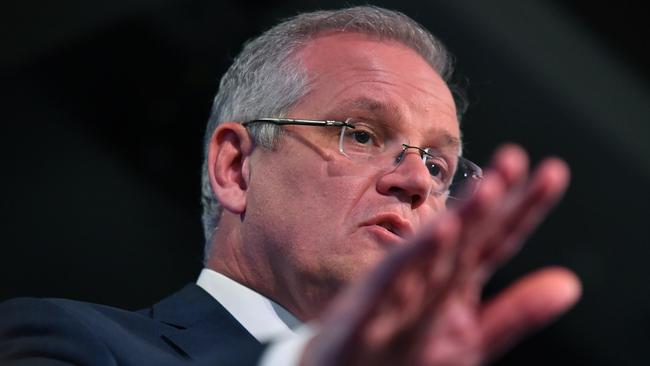
In response to the widespread bushfire devastation, the PM told the National Press Club yesterday he would seek to change the law to be able to invoke a national state of emergency when necessary.
His other key theme was economic management, saying it was vital to keeping Australians safe and building the nation’s resilience.
CLIMATE CHANGE
Mr Morrison said Australia would “go beyond targets and summits” and that action would be “driven by technology, not taxation”.
There would be a transition period while technologies such as batteries and hydrogen power were developed. It would be at least a decade until green power was ready to take over.
Until then, “gas has a critical role to play, as a backstop to our record investment in renewable energy generation,” the PM said. “It helps ensure we can keep the lights on when the wind isn’t blowing and the sun isn’t shining.”
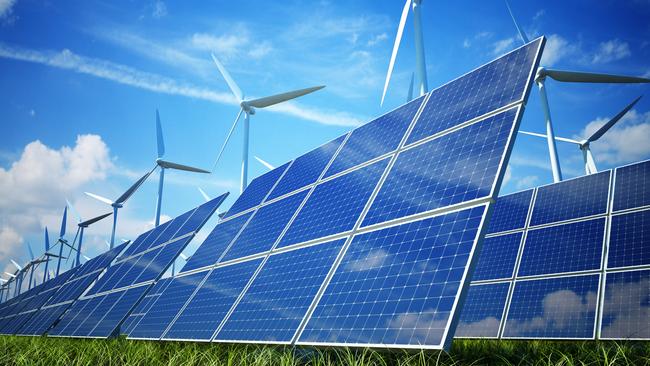
A detailed plan for hydrogen, solar and batteries, large-scale energy storage and carbon capture would be revealed next month, he said.
The PM criticised global emissions reduction frameworks, saying they contained “real weaknesses” because they “endorse big increases by some of the world’s largest growing economies”.
“So understandably, this tests the patience of people in countries like Australia.
“The atmosphere doesn’t care where emissions come from,” the PM said.
He also defended Australian coal mining, saying that forced shutdowns would see other countries “just buy the coal from somewhere else, often poorer quality with greater environmental and climate impacts.”
BUSHFIRES
Mr Morrison said he believed there was now a “clear community expectation that the Commonwealth should have the ability to respond in times of national emergency and disasters, particularly through the deployment of our defence forces”.
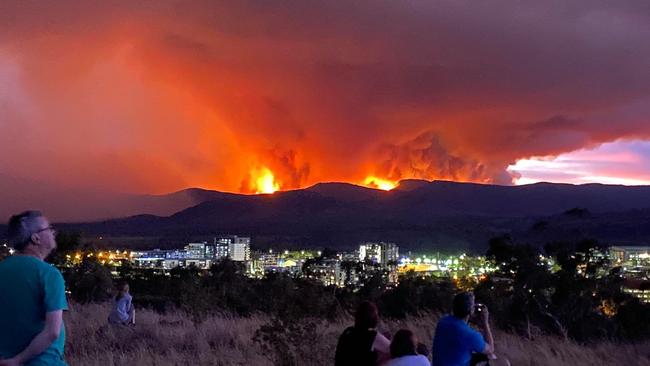
“After this fire season, and before the next one, this is an area where we will need to get some clarity and we need to make some decisions, make some calls on this, including changing the law where and if necessary to … allow the Commonwealth to declare a national state of emergency.”
He also said he wanted “an enhancement of a national accountability framework for natural disaster risk management, resilience and preparedness”.
Previous bushfire inquiries have been repeatedly told such changes are needed to keep the states on the job.
ECONOMY
The PM said the economy was “making the leap to the next phase of our prosperity” and that carried “risks and challenges”. So helping people to improve their skills would be a focus.
ANALYSIS: BALANCING ACT WINNERS AND LOSERS
Scott Morrison’s first big speech of the year contained bad news for Sydney MP Dave Sharma but good for Melissa McIntosh.
The speech made it clear the Prime Minister has no appetite for going harder on emissions targets than the current commitment, which is to be 26-28 per cent below 2005 levels by 2030.
Earlier this month the PM had appeared open to the idea of an “evolving” climate action policy.
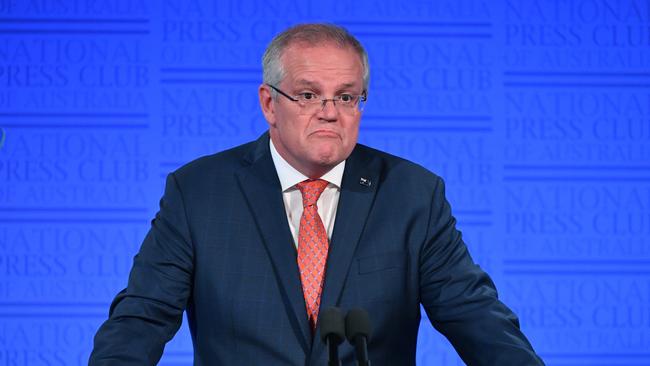
That would have been great for Sharma, who reclaimed the eastern suburbs seat of Wentworth from independent Kerryn Phelps at the last election.
Sharma has both quality and talent.
It would be nice if these were enough to hold on to the seat. But they are not.
He needs to court the votes of those who are uneasy about the way the New York Times writes about Australia.
In one recent piece, the NYT said Australia may become uninhabitable and that Morrison could come to be viewed as having overseen “omnicide” — the killing of everything.
McIntosh won the Penrith-based seat of Lindsay from Labor in May.
She was assisted by the scandals that surrounded the former member, Emma Husar.
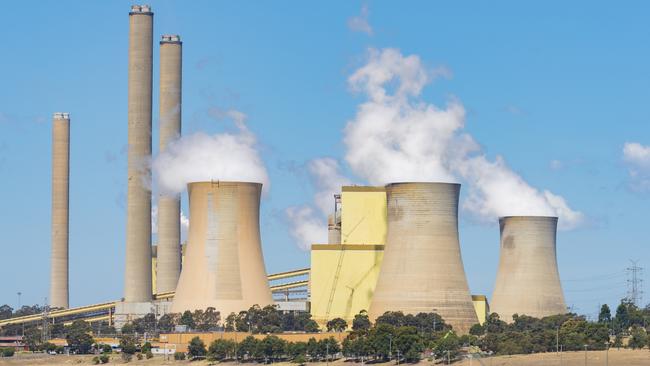
But she also benefited from the ascension of Morrison at the expense of Malcolm Turnbull.
Suddenly the Liberals looked more Howardesque.
On climate change, the PM has found a phrase that will have cut-through in outer suburbs and the regions — “technology, not taxation”.
Expect to hear it over and over and over again.
If the government can get the settings right, jobs and wealth can come from increasing the rate of growth of renewable energy industries.
But Morrison knows traditional industries such as mining must also be supported. Hence his embrace of gas (and coal) in yesterday’s speech.
It’s a balancing act Anthony Albanese is also trying to perform.


